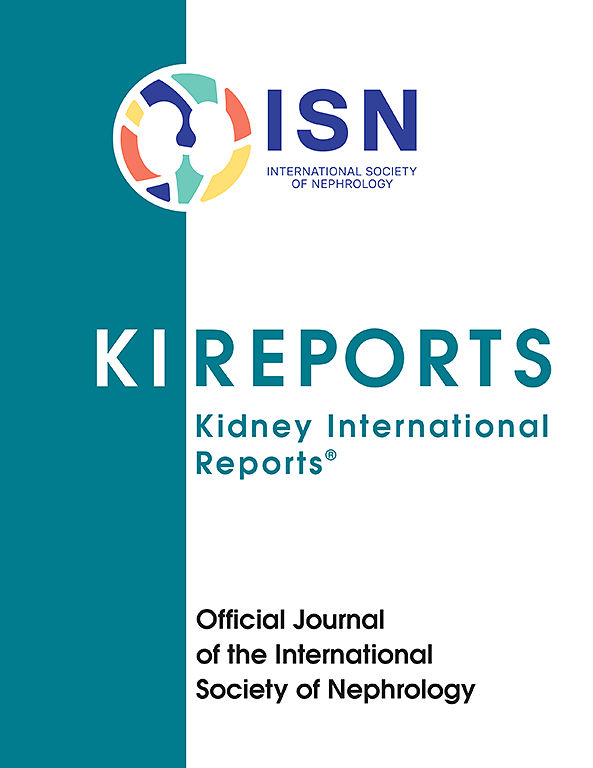患者和临床医生对生殖保健和 ADPKD 的看法
IF 5.7
2区 医学
Q1 UROLOGY & NEPHROLOGY
引用次数: 0
摘要
计划生育和生殖保健是常染色体显性多囊肾病(ADPKD)患者生命周期管理中必不可少但又十分复杂的方面,因为这可能会导致基因传播和与妊娠相关的并发症。在这项定性研究中,我们研究了 ADPKD 患者和临床医生的经历和观点,以确定生殖生命周期护理中可能需要改进的地方。我们在荷兰开展了焦点小组讨论(FGD),参与者包括通过不同生育选择生育子女的男性和女性 ADPKD 患者,以及临床医生,包括(儿科)肾病学家、妇产科医生和遗传学家。采用基础理论方法对录音逐字记录进行了主题分析,然后进行了共识讨论,最终确定了主题。由 31 名参与者(16 名患者和 15 名医生)参加的 9 个焦点小组确定了 6 个关键主题。这些主题包括:从青春期开始就需要及时、全面地传播信息;了解患者特定的决策因素;改善有针对性的心理指导和沟通;需要系统性地照顾遗漏的(未成年)高危患者;解决获得护理方面的不公平现象;以及改善多学科合作。本研究是首次从患者和医生的角度对 ADPKD 生殖生命周期护理进行的定性研究。我们对影响患者生育决策的因素提出了宝贵的见解,对患者和临床医生在计划生育和对有 ADPKD 风险的未成年人的随访护理方面的观点进行了全面的比较,并提出了提高整体护理质量的建议。将这些见解纳入临床护理可加强以患者为中心的护理,促进跨学科合作,从而进一步提高 ADPKD 患者的生殖健康护理服务质量。本文章由计算机程序翻译,如有差异,请以英文原文为准。

Perspectives of Patients and Clinicians on Reproductive Health Care and ADPKD
Introduction
Family planning and reproductive care are essential but complex aspects of lifecycle management for individuals with autosomal dominant polycystic kidney disease (ADPKD), given the potential genetic transmission and pregnancy-related complications. In this qualitative study, we studied the experiences and perspectives of patients with ADPKD and clinicians to identify areas for potential improvement in reproductive lifecycle care.
Methods
Focus group discussions (FGDs) were conducted in the Netherlands with patients with ADPKD, both men and women, who had children through varied reproductive choices; and clinicians, including (pediatric) nephrologists, obstetric gynecologists and geneticists. Thematic analysis, utilizing a grounded theory approach, was performed on verbatim transcriptions of recordings, followed by consensus discussions to finalize themes.
Results
Nine focus groups involving 31 participants (16 patients and 15 physicians) identified 6 key themes. These included the need for timely and comprehensive information dissemination from puberty on, understanding patient-specific decision-making factors, improving tailored psychosocial guidance and communication, the need for systematic efforts to take care of missed (minor) at-risk patients, addressing inequities in access to care, and improving multidisciplinary collaboration.
Conclusions
This study represents the first qualitative study of patient and physician perspectives on reproductive lifecycle care for ADPKD. We present valuable insights into factors influencing patients’ reproductive decision-making, a comprehensive comparison between the perspectives of patients and clinicians on family planning and follow-up care of minors at risk for ADPKD, and recommendations for enhancing overall care quality. Incorporating these insights into clinical care could enhance patient-centered care and foster interdisciplinary collaborations to further improve the quality of reproductive health care services for individuals with ADPKD.
求助全文
通过发布文献求助,成功后即可免费获取论文全文。
去求助
来源期刊

Kidney International Reports
Medicine-Nephrology
CiteScore
7.70
自引率
3.30%
发文量
1578
审稿时长
8 weeks
期刊介绍:
Kidney International Reports, an official journal of the International Society of Nephrology, is a peer-reviewed, open access journal devoted to the publication of leading research and developments related to kidney disease. With the primary aim of contributing to improved care of patients with kidney disease, the journal will publish original clinical and select translational articles and educational content related to the pathogenesis, evaluation and management of acute and chronic kidney disease, end stage renal disease (including transplantation), acid-base, fluid and electrolyte disturbances and hypertension. Of particular interest are submissions related to clinical trials, epidemiology, systematic reviews (including meta-analyses) and outcomes research. The journal will also provide a platform for wider dissemination of national and regional guidelines as well as consensus meeting reports.
 求助内容:
求助内容: 应助结果提醒方式:
应助结果提醒方式:


